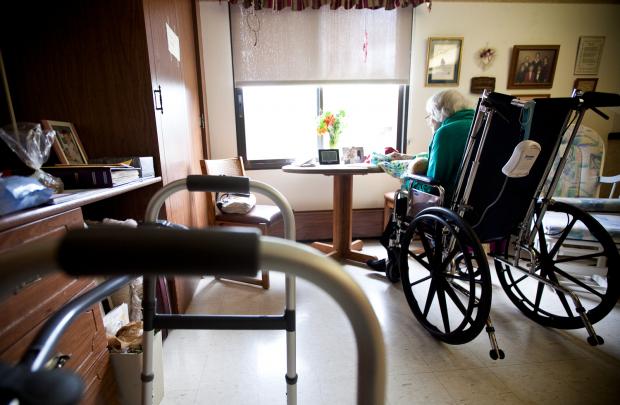The head of the Wisconsin Health Care Association said the U.S. Senate health care bill would force nursing homes to close their doors. John Vander Meer, executive director of the association, said they’d like Senate leaders to change one provision back to the House version at the very least.
Vander Meer said the Senate’s measure would tie Medicaid funding to a lower growth rate. He said that move would eliminate any profit their nursing homes receive.
“Our facilities on average have about a 1.5-percent margin so that means they make a profit of about $100,000 to $150,000,” Vander Meer said. “That would basically eliminate any profit they receive and it would basically devastate nursing homes and force facilities to close in significant numbers.”
Stay informed on the latest news
Sign up for WPR’s email newsletter.
Vander Meer said the change from the House bill could cost the average facility $600,000. He said nursing homes are already struggling to keep their doors open due to a lack of staff and limited Medicaid reimbursement.
An industry survey of 689 long-term and residential care providers last year revealed an estimated 11,500 caregiver positions are unfilled across Wisconsin. Vander Meer added facilities lose about $56 per Medicaid patient each day.
Gov. Scott Walker has proposed increasing Medicaid reimbursement rates for skilled nursing facilities by 2 percent each year in the 2017-2019 biennium budget to help address the challenges faced by nursing home providers. The measure has passed through the Joint Finance Committee, but it has yet to be voted on by the full Legislature.
Health care providers, patient and business groups are also concerned about the disparity in Medicaid funding for states like Wisconsin in the Senate health bill. The groups sent a letter to U.S. Sen. Ron Johnson, R-Wisconsin, to push for changes.
Wisconsin is one of 19 states that did not accept Medicaid expansion funding under the Affordable Care Act. Vander Meer fears Wisconsin could be penalized under the Senate health care bill. A recent study by the Missouri Hospital Association showed estimated expansion states would receive about 67 percent more in Medicaid funding under the House version of the bill.
“Any legislation that is ultimately passed moving forward needs to take into account that some states did not take that Medicaid expansion,” he said. “There needs to be fairness between the states and Wisconsin shouldn’t be placed at a disadvantage as a result of this legislation.”
A spokesman for Johnson said on Wednesday that the Republican lawmaker has been promoting fair treatment for states like Wisconsin with GOP colleagues and President Donald Trump.
Medicaid funding would be cut around $772 billion over the next decade under the Senate bill as its currently written, according to the Congressional Budget Office.
Wisconsin Public Radio, © Copyright 2025, Board of Regents of the University of Wisconsin System and Wisconsin Educational Communications Board.





